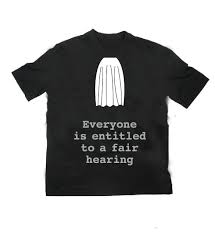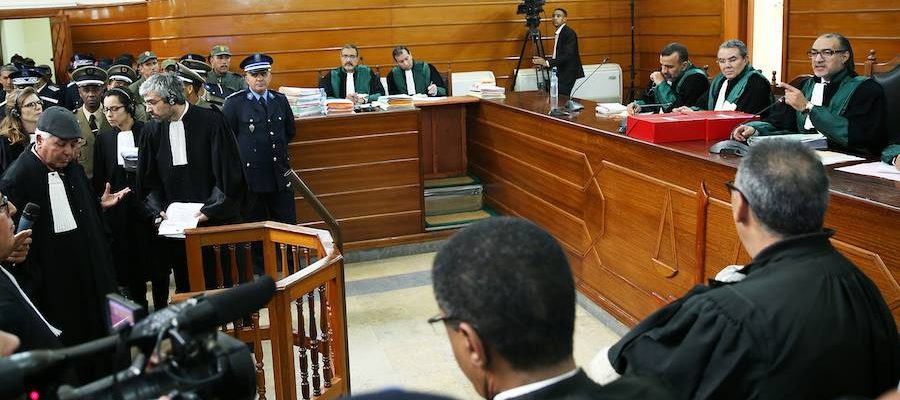Know Your Rights to Fair Hearing
RIGHT TO FAIR HEARING
– Section 36
This is more or less the most important provision of the Nigerian Constitution as far as fundamental rights are concerned. It is called the Fair Hearing Rule. Section 36 of the 1999 Constitution in sub-section (1) provides as follows:
“In the determination of his civil rights and obligations, including any question or determination by or against any government or authority, a person shall be entitled to a fair hearing within a reasonable time by a court or other tribunal established by law and constituted in such manner as to secure its independence and impartiality.”
What the above simply means is that a person is entitled to fair hearing within a reasonable time in any situation where his civil rights and obligations has to be determined by a court or a lawful tribunal, including any case involving or against the government or any authority.
From the above provision of the Constitution, every citizen of Nigeria is entitled to fair hearing where there is any question regarding his civil rights and obligations. The five ingredients of fair hearing, therefore, are as follows:
a. If there is any question: question here means an inquiry, investigation, trial, query or probe into the activities of a person or authority. The question may be in respect of a criminal or civil matter. It may be a question by or from a government or authority. It may also be by or from a private organization or person. But, that question must seek to determine what are the rights and obligations of a particular individual under the law.
b. The person must be given fair hearing: being given fair hearing under the Constitution means being given an opportunity to respond to the question, inquiry, query or probe. The person from whom the question is asked must be allowed to defend himself or give an answer to the question before a determination or decision is made against him. This is the most fundamental part of fair hearing.
c. Within a reasonable time: This means that the person from whom the question is asked must not only be given an opportunity to answer but must be given a reasonable time to reply to the question. Reasonable time here will depend upon the circumstances of each case. But, generally, the time must be sufficient enough to enable the person respond adequately to the question, query or probe.
d. By a Court or Tribunal established by law: under the Constitution, only courts or tribunals established by law are recognized. Therefore, a person from whom a question is asked must be taken only to a court or tribunal which is established according to laid down laws to decide whether he is liable or not. He cannot be taken anywhere else.
e. Independence and impartiality of the court: The court or tribunal seeking to determine the question must be constituted in such a way as to guarantee its independence and impartiality. The requirement of independence of a court is to ensure that the court is free from all intimidation, inducement, fear or favour. As to impartiality, this must be evident in the composition of the members of that court, the arena of sitting and the pronouncement of the court.
All the above are the ingredients which must be present before a person is said to be given his right of fair hearing under the constitution.
However, on the issue of independence and impartiality, a law would not be regarded as denying a person his right to fair hearing simply because it empowers the government or any authority to decide an issue concerning such government itself and which may affect the fundamental rights of an individual. For example, let us assume that some civil servants working for Lagos State Government defrauded the Government of millions of Naira. And, the Lagos State Government now passes a law which sets up a panel of inquiry to probe those who are guilty and possibly recommend punishment against them. The fact that the Lagos State Government is the complainant in the case and still the same organ setting up the panel of inquiry does not mean that it has gone against the constitutional rule of fair hearing. But, this panel must give the persons whose rights are being affected the opportunity to make their representations or defense to it before it makes its decisions. Secondly, there must not be any provision in the law setting up the panel which states that its decision is final and cannot be challenged in the court of law.
Furthermore, an essential rule of fair hearing is that the proceedings of any court or any tribunal seeking to determine the rights and obligations of a citizen must be held in public. That means the sittings of the court must be held in such a way that everybody has access to the proceedings and it can be witnessed by anybody who so desires. The totality of the trial must be held in public while the announcement of the judgment or decision of the court or tribunal must also be made in public.
In respect of criminal matters, the Constitution provides that whenever anybody is charged before a court or tribunal with a criminal offence, he shall be entitled to fair hearing, unless the charge against him is withdrawn. The fair hearing must be within a reasonable time and it must be done in public. All the other ingredients as stated above must be observed.
However, there are times when a court is empowered by law to hold its sittings in camera. This means no member of the public except the parties to the case and their legal practitioners are allowed to come into the court or witness the proceedings. This may happen in the following instances:
a. Where the proceedings of the court or the evidence to be given during the trial may not be in the interest of defense, public safety, public order or public morality.
b. In order to protect the welfare of a person who has not attained the age of 18 years.
c. In order to protect the lives of the parties to the case themselves.
d. Or, where the court considers it necessary to hold the proceedings in camera because of special circumstances in which publicity would be contrary to the interest of justice.
Furthermore, the court may hold its sittings in camera if a Minister or Commissioner satisfies the court that it would not be in the public interest if any matter is publicly disclosed during the trial. In this instance, the court may make arrangements for evidence at that trial to be heard in private and the court is entitled to take any other action as may be necessary to prevent the disclosure of the matter.

